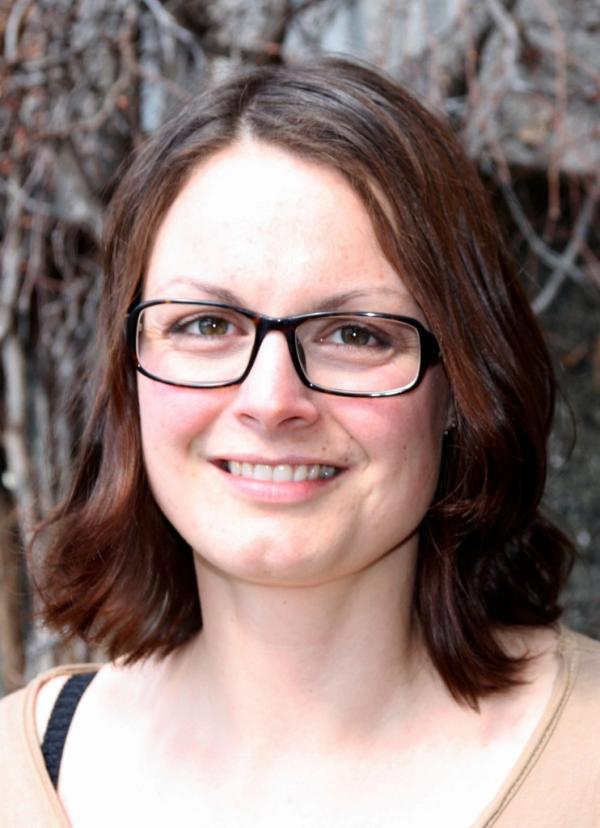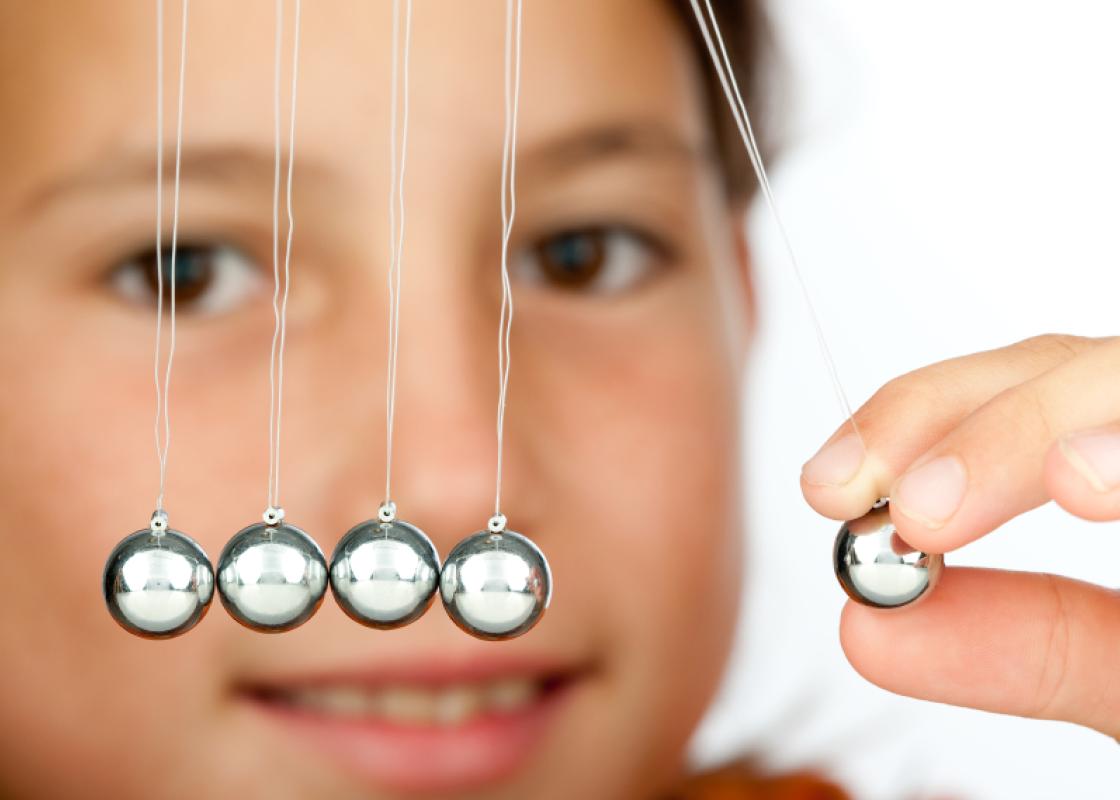“I would like to see the field of physics draw attention to the wide range of job opportunities it gives access to. People have so many different issues that are close to their hearts. We need to make young people aware that an education in physics is useful, whether they dream of creating an even cooler smart phone or of saving the world from environmental disaster.”
These remarks were made by Maria Vetleseter Bøe, who recently defended her doctoral thesis entitled What’s in it for me? Norwegian students’ choices of post-compulsory science in an expectancy-value perspective. In her thesis, she analyzes figures from Project Lily, a Norwegian survey of educational choices made by pupils in upper secondary schools.
She compares the motivation of 1,628 pupils who selected the programme area for natural science and mathematics studies or the programme area for languages, social science and economics studies on the questionnaire. In addition, Project Lily also has figures from students who recently began at the university, and from this group Bøe analyzes the motivation of new physics students.
The analysis was performed using a method developed by Jacquelynne Eccles, a recognized US education researcher. More information about Eccles is available here (in Norwegian only).
Idealistic girls
On the questionnaire, many girls in upper secondary school state that they want to work in an idealistic career in the future. They say they want to work with people or do something important for society. Girls who mark off this box and choose physics often dream of becoming doctors.
“But of course it’s also possible to help people by, for example, building technology that doctors use to treat their patients,” notes Bøe.
She fears, though, that this is seldom communicated to the pupils.
“The ‘physics culture’ - that is, the teaching methods, the ethos, the way things are done – is probably best suited to those with a great interest in the subject itself. Very little emphasis is placed on the history of physics and the role of physics in modern society. The focus is on basic knowledge, laws and theories,” says Bøe.
Pieces, not a whole
“Many schoolchildren are interested in topics that are addressed in physics. They are interested in outer space or large and small phenomena in nature. But the classroom instruction is often built up piece by piece, and some pupils’ fascination with large, exciting phenomena disappears in the grind of learning about isolated laws and forces. The entirety is enormous, and the big picture unfolds gradually over time. Many more pupils would probably develop an interest in physics if the entire picture were presented earlier,” says the researcher.
Like many other education researchers, Bøe thinks that the physics should do more to tap into the pupils’ sense of wonder. The curriculum in the field is undergoing many positive changes, she believes, but the teachers must also be given the time and opportunity to try out new and exciting methods of instruction.
“When asked who inspired them to study physics, many of them said a teacher. This shows how important a good role model is for the pupils. But everything doesn’t need to rest on the teacher: a classroom visit by a university student or taking part in Jentedagen at NTNU can also be important sources of inspiration.”
Time for other things
In the questionnaire, the pupils were asked how important it was for them to avoid demanding subjects that take time away from their leisure activities.

“This wasn’t very important for the pupils who chose physics, but it meant more for many of the pupils who chose languages, social sciences and economics. Some probably don’t choose physics precisely because it has a reputation for being demanding,” says the researcher.
Of course, Bøe does not believe that we should “sell” physics on false grounds and hide the fact that it can be demanding.
“It’s probably true that it takes more time to get good marks in physics. The subject involves a lot of abstract thinking and complex math. So it’s not surprising that the pupils who choose to study physics have a strong interest in the subject for its own sake.”
“The people who choose physics – like me! – also enjoy the culture and the subject, and we don’t want to scare them away. But I think it will strengthen the subject if we encourage pupils with other motivations to choose this area. We will always attract people who want to conduct basic research; they won’t stop. But we need to show the idealists in secondary school that it’s possible to ‘save the world’ with physics,” she says.
See also: Class more important than gender for school performance
Interest and usefulness
Pupils in upper secondary school say that they choose subjects based on their interests and how they feel they can best use their talents and skills. Pupils who choose physics are a bit more concerned than others with the usefulness aspect.
“This is logical, since the physics are a requirement in some programme areas. Other areas don’t have these requirements to the same degree,” Bøe points out.
The pupils who choose physics are often extremely interested in the subject itself.
“Maybe we do live up to the nerd stereotype,” says Bøe with a smile.
Girls who choose physics
The survey shows that girls who choose physics at the university are not very different from the boys who do the same.
“They are just as enthusiastic. They want to be researchers, and they want to develop new technology just much as the boys do. In other words, technology is not a magnet for boys in this group. We don’t see either that the boys are more materialistic than the girls – in fact there’s a slight tendency for the girls to be more concerned with earning money and getting a secure job than the boys,” she says.
She did find two slight differences though:
“The girls appeared to be a little more idealistic in this field as well. And unfortunately, like in many other fields, we also find that these girls doubt their own abilities more than the boys do.”
Only girls?
“Is it only girls who need to be convinced to study physics?”
“Girls are in the minority in physics, and in the questionnaire they appear to be more idealistic. So there’s a lot to be gained from showing these girls that physics could be something for them,” says Bøe, and continues:
“I don’t mean to say that if we just get more girls into physics, then things will change, or that the field lacks a female perspective. We need another type of person in addition to those who are already there, and right now we can gain more from recruiting the girls. But of course I want more of the idealistic boys to choose physics too!”
Why physics?
“But why is it so important to get girls to study physics – can't everyone just choose what they think is fun?”
“There are many reasons for this. My colleagues and I emphasize five things,” says Bøe.
First of all, Norway needs more natural scientists, especially physicists. The number of physics students is declining throughout much of the world. The situation is a little better in Norway, where the number of students has been rather stable in recent years. Nonetheless, there are still not enough students graduating in physics relative to the number of jobs that are available. In this sense, women are an untapped resource since so few girls choose physics.
Representation is another issue: Women lose influence when they are not present in a field where decisions about the future are taken. According to the researcher, this is an issue of power.
“Thirdly, it’s problematic for the field that the group is too homogenous. A wider variety of participants will enrich the subject,” says Bøe.
Fourthly, she points out that it is unfortunate if negative stereotypes about the subject cause young people to reject it on false grounds.
“If they get too little or incorrect information about the subject, they can’t make a free, well-informed choice. The fifth reason is tied to this: boys and girls who actually are suited to study physics, but don't know it, missed out on a lot of fun!”
Translated by Connie Stultz.
This article is also published by Gender Balance in Research - Norway.
Maria Vetleseter Bøe is a researcher at the Norwegian Centre for Science Education. She recently defended her doctoral thesis entitled What's in it for me? Norwegian students' choices of post-compulsory science in an expectancy-value perspective at the Faculty of Educational Sciences at the University of Oslo.



